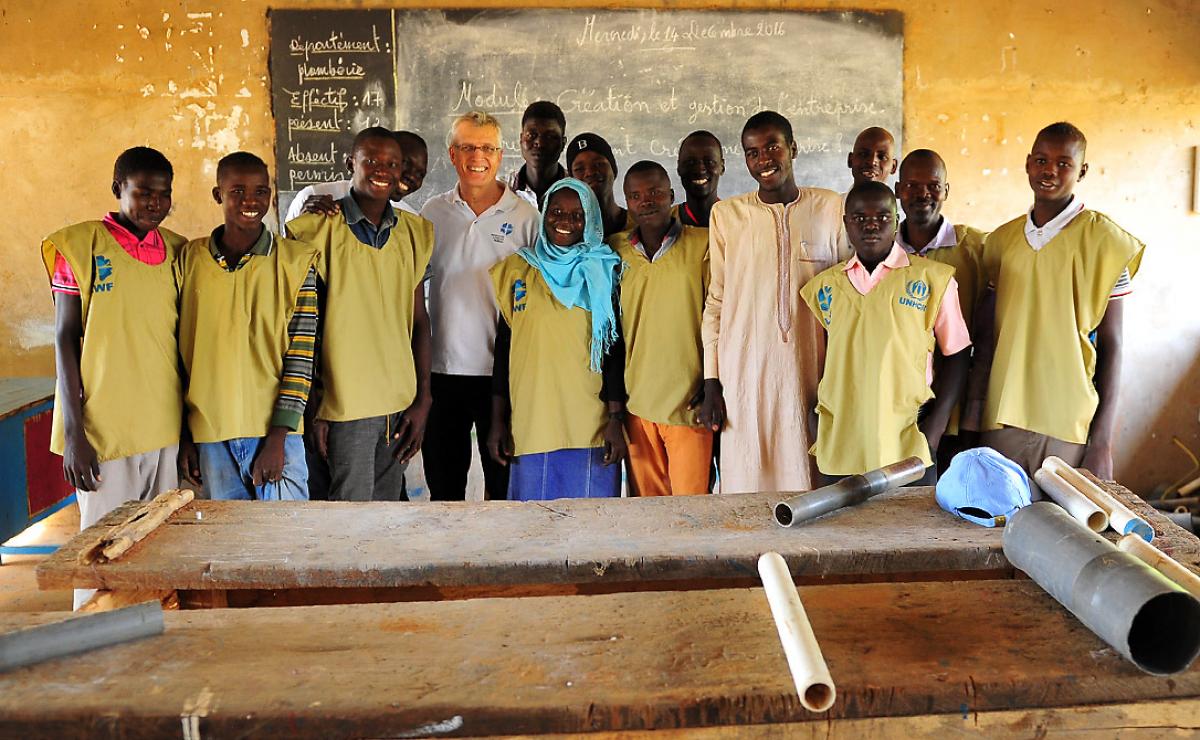LWF General Secretary visits Chad

Attention and innovative solutions are needed to address a protracted crisis
(LWI) – The Lutheran World Federation (LWF) General Secretary Rev. Dr Martin Junge visited the LWF country program in Chad last week, the first-ever visit of an LWF General Secretary to the country. It was aimed at seeing the places where the LWF works, encouraging staff, meeting refugees and host communities and raising awareness about the country’s protracted refugee and forgotten humanitarian crisis.
Junge was accompanied on the visit by Susan Muis, LWF World Service Regional Program Coordinator for Central Africa; Adamou Koumanda, LWF Country Representative for Chad; and Árni Svanur Daníelsson, LWF Head of Communications.
Assisting internally displaced people, refugees and host communities since 2007
LWF has been active in Chad since 2007 when it was invited to respond to the needs of internally displaced people (IDPs) in the country. The country program provides psychosocial assistance, community services, environmental protection, alternative sources for efficient energy, shelter and local infrastructure. LWF also supports agricultural production, animal husbandry and income-generating activities with IDPs, and assists refugees from neighboring countries.
Today LWF works in 12 of the 18 refugee camps and in 181 host villages in eastern and southern Chad. Since 2012, the LWF has been the largest implementing partner of the United Nations High Commissioner for Refugees in Chad. In 2016 LWF assisted 256,350 people, refugees and IDPs, returnees and people from host communities. It secured around 70 hectares of farmland for vegetable gardening around Goz Beida that resulted in a harvest of 321 tons of vegetables. Since 2007 the program has invested more than EUR 46.3 million in its projects.
More than half a million refugees and displaced people
A landlocked country of 14 million people, Chad is surrounded by countries experiencing internal conflict. It is one of the poorest countries in the world, and was ranked 185 of 188 on the Human Development Index in 2015. It is currently facing an economic crisis, which has led to the closure of schools and health facilities.
Chad hosts nearly 400,000 refugees fleeing conflicts in the Central African Republic, Libya, Nigeria and Sudan, many of who have lived in the country for more than a decade. Additionally more than 170,000 internally displaced people and returnees live in the country. The long-term displacement places strains on already scarce resources. This calls for approaches that combine humanitarian response and development intervention. These approaches need to be supported by international actors.
Witnessing a forgotten crisis
Junge visited LWF projects in eastern Chad – in Goz Beida, the Djabal refugee camp and Koutoufou village. He held discussions with displaced families, visited the vocational training center in Djabal and met refugees and local villagers working together to improve their livelihoods. He met people who have benefited from the Seeds for Solutions project which integrates humanitarian aid and development work, and enables refugees and local villagers to become self-reliant. “Seeds for Solutions not only improves livelihood but it also contributes towards peaceful coexistence of refugees and host communities,” Junge noted.
Speaking to LWI after the visit, Junge said, “Chad is one of the poorest countries of the world, yet it hosts almost 400,000 refugees. It is commendable how the people of Chad welcome the stranger. They need to be supported.”
He added that the protracted refugee situation in Chad calls for durable solutions which focus on the self-reliance of refugees. “I believe the Seeds for Solutions project which the LWF has implemented in Chad since 2014, contributes to the protection of refugees and to the development of the host community by integrating both groups to jointly secure their livelihood.”

